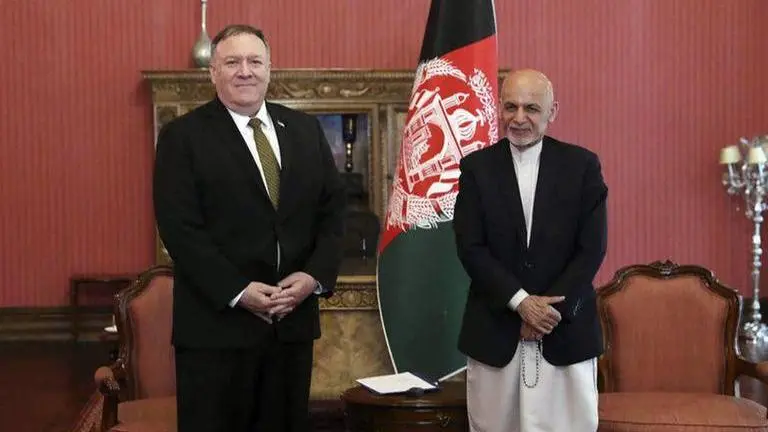Updated 27 March 2020 at 18:35 IST
Political turmoil in Kabul dogs negotiations with Taliban
President Ashraf Ghani announced his 21-member team to negotiate peace with the Taliban on Friday after months of deliberation, only to have his political opponent reject it as not inclusive enough.
- World News
- 3 min read

President Ashraf Ghani announced his 21-member team to negotiate peace with the Taliban on Friday after months of deliberation, only to have his political opponent reject it as not inclusive enough.
Afghanistan's political turmoil has impeded each tentative step toward negotiations with the Taliban, which is the next critical step in a peace deal Washington signed with the insurgent group last month.
The deal calls for the eventual withdrawal of all 13,000 U.S. soldiers from Afghanistan in exchange for guarantees from the Taliban to fight terrorist groups, including the Islamic State group. The deal has also been touted as Afghanistan's best chance yet of ending its relentless wars.
But Ghani and his opponent, Abdullah Abdullah — who has also declared himself president — have been locked in a political power struggle that even U.S. Secretary of State Mike Pompeo could not bring to an end.
Advertisement
Pompeo made an emergency visit earlier this week that ended with a promise to cut $1 billion in assistance to Afghanistan if the two leaders couldn't “get their act together.”
Ghani's 21-member team is led by the Masoom Stanikzai, former head of Afghanistan's intelligence agency, who was forced to resign last year. He quit after a CIA-trained team under his command was
Advertisement
The special forces unit known as Unit 02 still operates despite reports of abuses, including one last year by the Human Rights Watch, which documented what it says are mounting atrocities by U.S.-backed Afghan special forces.
Abdullah meanwhile is unhappy with the negotiating team. He also wants to restart talks with Ghani to devise a power-sharing deal, which until now the Afghan president has rejected.
Abdullah has accused Ghani of being unwilling to compromise. Ghani for his part says that Abdullah's power sharing demands will require a constitutional change and that can come only with a loya jirga, or grand council.
In a televised speech earlier this week, Ghani also said Afghanistan can manage without the $1 billion in U.S. aid. Despite 18 years and billions of dollars in international aid, Afghanistan remains desperately poor. The poverty level soared from 35% of the population in 2012 to more than 55% last year. Poverty level counts those who survive on $1 or less a day. Successive Afghan governments, including Ghani's, have been accused by international watchdogs of widespread corruption.
Meanwhile, Taliban political spokesman Sohail Shaheen said the group would send four members to Bagram north of Kabul to oversee the release of their prisoners, also part of the deal signed with the U.S.
That deal calls for the
The visit to Bagram will be the first time Taliban representatives have officially visited Afghanistan since being thrown out of power in 2001 by the U.S.-led coalition after they harbored Osama bin Laden and al Qaida.
Published By : Associated Press Television News
Published On: 27 March 2020 at 18:35 IST
